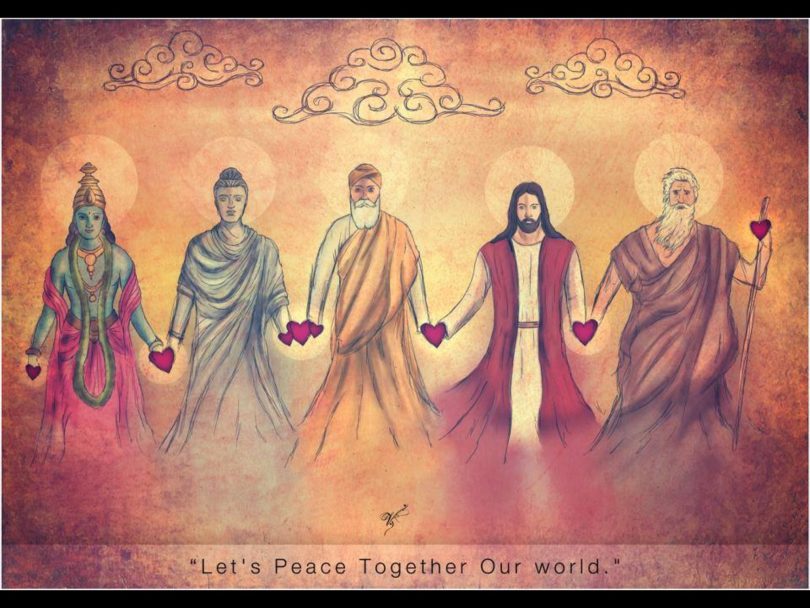Question: If Jesus, Mohammed and Buddha were giving a message relevant to a particular time and place, why didn’t they give the name Krishna as it would have meant the solution to a lot of problems of today? Just because they didn’t, does it mean that their teachings are not valid?
Answer by Romapada Swami:
Spiritual teachings are disseminated according to the particular needs of the people being preached to, based on their level of spiritual advancement. Lord Buddha’s mission was simply to dissuade the cruel animal killing practices that were being carried on in the name of Vedas. Similarly Sankaracharya also preached impersonalism, according to his own statement, in order to simply delude the atheists, and to bring people back to the fold of the Vedas from Buddhism and other deviated sects. In other words, their mission at that particular time was not the dissemination of Absolute Truth, because the people were not ready for it. Their purpose was to uplift the population from a course of abject degradation and pave way for progressive advancement in future. While their actions amount to incomplete revelation of the truth or even deception, their efforts accomplished a needed step away from total material absorption.
Similarly, Christ’s and Mohammed’s choice not to reveal the topmost understanding about the nature of the spiritual world and detailed descriptions of God and His topmost holy names, given their particular time and circumstances, was for very good reasons. They both declared the fact that they were not disclosing the complete Truth in its entirety. This does not invalidate their teachings but they are to be accepted as appropriate to their time and circumstances.
Srila Prabhupada compared such apparent discrepancies between different systems of religion to that which is sometimes found between elementary and higher level mathematics. These ‘seeming contradictions’ were introduced purposefully; distinctions are indispensable because it is important at the elementary level to simplify concepts, thus leaving out higher understandings.
Quite often, and naturally so, beginners in spiritual life are unable
to penetrate to the essence of their religious teachings and see the
points of underlying unity with other systems. It may sometimes even be
important for neophytes in spiritual life, therefore, to devoutly stick
to their own particular principles as taught in their own faiths until
they come to a higher level of spiritual realization and purity.
Difficulties arise, however, when we accept the external aspects as
all-in-all and fail to respect the differences in those systems laid out
for others based on their own level of advancement. [Then there are
those who tend to the other extreme of secularism and indiscriminately
accept anything and everything as equally valid and finally adhere to
none. The result is
simply a complete loss of systematic spiritual
cultivation.] The real solution is only the continued education within
different groups to gradually come to a higher spiritual understanding
where such apparent differences are eliminated, once again as in the
example of understanding higher-level mathematics.
It has indeed been the prediction of the acaryas that there will be a golden age in this Kali when all the different religions of the world and their sub-sects will unite under the banner of Lord Caitanya’s sankirtan movement and at that time all of their particular understandings and realizations will be synthesized in his philosophy of `acintya-bhedabheda’ or “simultaneous-oneness-and-difference.”







